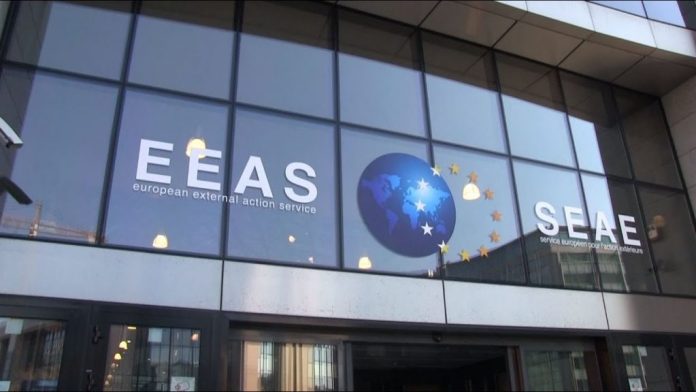EU ambassadors serving in more than 140 countries are set to meet their bosses in Brussels this week to speak the truth to the authorities, according to EUobserver.
Internal meetings of EU envoys are organised annually by the European External Action Service. Last year, Josep Borrell, the EU’s foreign policy chief, scolded his diplomats for not being persistent enough in “communicating the EU’s narrative,” urging them to be faster, bolder and more empathetic.
Old recipes do not work anymore.
As more than 8,000 Palestinians, 40 per cent of whom are children, have been killed in three weeks in Israel’s military response to the October 7 Hamas attack, EU governments have been accused of a chaotic and often unilateral stance in the Israeli-Palestinian war.
Europe needs to salvage its reputation on the international stage. EU ambassadors, many of whom are skilled and experienced diplomats, must convey some uncomfortable truths to leaders such as Josep Borrell, EU Council President Charles Michel and Commission President Ursula von der Leyen.
The bloc’s reputation as a staunch defender of a rules-based and moral international order is collapsing as the death toll in the Gaza Strip rises daily, turning the enclave into a graveyard for thousands of children.
Many European governments have been accused not only of “refusing to meet their treaty obligations” under the Geneva Conventions, but also of arming Israel’s attack and providing political and diplomatic cover for it.
The publication of endless videos of EU leaders’ meetings with presidents and prime ministers only further emphasises the bloc’s helplessness amid the daily escalating military conflict in the Middle East, as almost every meeting ends with a sharp condemnation of one side’s actions and supportive statements.
In addition, the increased focus on the Israel-Hamas war is distancing world leaders from an equally important issue: Ukraine’s war with Russia. The world community is focusing more and more on the humanitarian tragedy in the Gaza Strip, while military aid to Ukraine can take weeks, if not months, to arrive.
Moreover, what happens in the Middle East has repercussions elsewhere. The decision by von der Leyen and many EU governments to support Israel, even though it contravenes the rules of war by collectively punishing innocent Palestinian men, women and children, has convinced many around the world that the EU is not practising what it preaches.
According to Tirana Hassan, the executive director of Human Rights Watch, the EU creates a reputation when “it says one set of rights applies to a certain group of people – people close to Europe – and another set of rights applies to people outside.”
The EU was once respected in the region as an “honest broker,” and successive US governments considered it a serious partner in the region. Today, however, the reputation of the EU, Israel’s largest trading partner and aide to Palestine, is deteriorating, destroying the bloc’s image as an unbiased party.
The world is watching as EU governments grapple with rising anti-Semitism and Islamophobia, and too many leaders manage to divide rather than unite their Jewish and Muslim populations.
As the bloc’s official representatives abroad, EU ambassadors have a responsibility to provide their chiefs with the reality of the situation so that the bloc can anticipate the necessary changes if it wants to remain an effective and respected entity.
